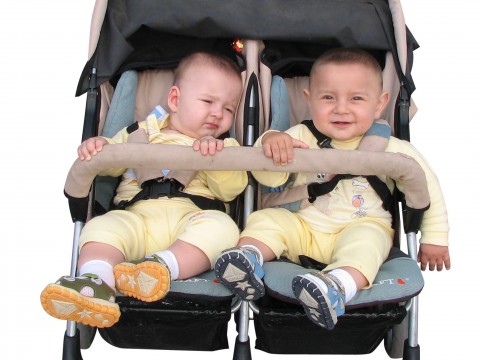Two Is A Company- Is Three A Crowd?
Having twins and multiples is a blessing, and you get two, three, four, or even five times the love. (Maybe more!) A multiples pregnancy can be a time of great joy ““ especially when you feel your babies kick for the first time ““ but it can also be a nerve-wracking experience. A multiples pregnancy comes with the possibility of multiple complications that you should come to understand.

When you’re carrying more than one baby in the womb, you are classified as “high risk.” The more babies you’re pregnant with, the higher the chance you’ll face problems. Common complications in a multiples pregnancy include premature birth, low birth weight infants, preeclampsia and high blood pressure, gestational diabetes, placental abruption, and other serious problems.
Premature Labor and Delivery
Premature labor and delivery is one of the most common complications in a multiples pregnancy. If you’re having twins, the March of Dimes predicts your risk of preterm delivery is 60 percent. The risk of delivering early goes up to 90 percent in triplet pregnancies.
On average, a twin pregnancy only lasts until 35 weeks. (In some cases, women can have 40-week pregnancies, but it’s more typical for a twin pregnancy to end early.) If you’re pregnant with three babies, the average length of pregnancy is 33 weeks, and for quadruplets, the average pregnancy is 29 weeks. The higher the number of babies you’re carrying, the shorter the length of your pregnancy.
Low Birth Weight Babies
In addition to the risk of preterm birth, another prevalent complication in a multiples pregnancy is delivering babies who have a low birth weight. Infants with low birth weights typically can’t breathe well on their own, and they may have difficulty fighting off infections. They also struggle with controlling their body temperature and putting on weight. Consequently, these babies have to spend more time in neonatal intensive care before they’re allowed to go home.
Health Complications in Pregnancy
During a multiples pregnancy, you may face a number of health complications. For example, gestational diabetes (which is a type of diabetes that develops in pregnancy and disappears after your baby is born) is a common occurrence with a twin or multiples pregnancy. If you develop gestational diabetes, your blood sugar and diet will be monitored very closely. Diabetes that is poorly controlled can have negative effects on your babies.
Preeclampsia (high blood pressure and a protein in the urine) is another health complication in a multiples pregnancy. This condition affects between 10 to 15 percent of all twin pregnancies, and it can be come life threatening if your blood pressure doesn’t decrease. In order to save you and your babies’ lives, you may be forced to give birth early.